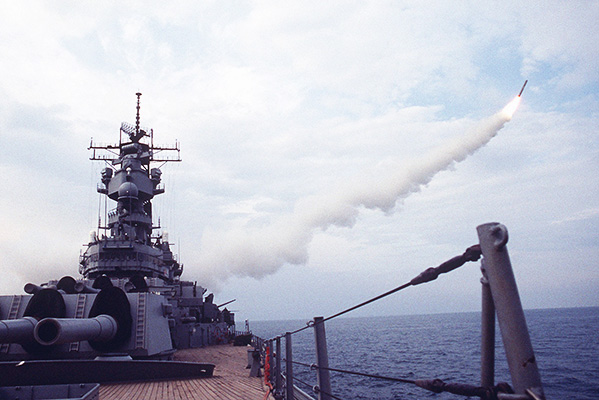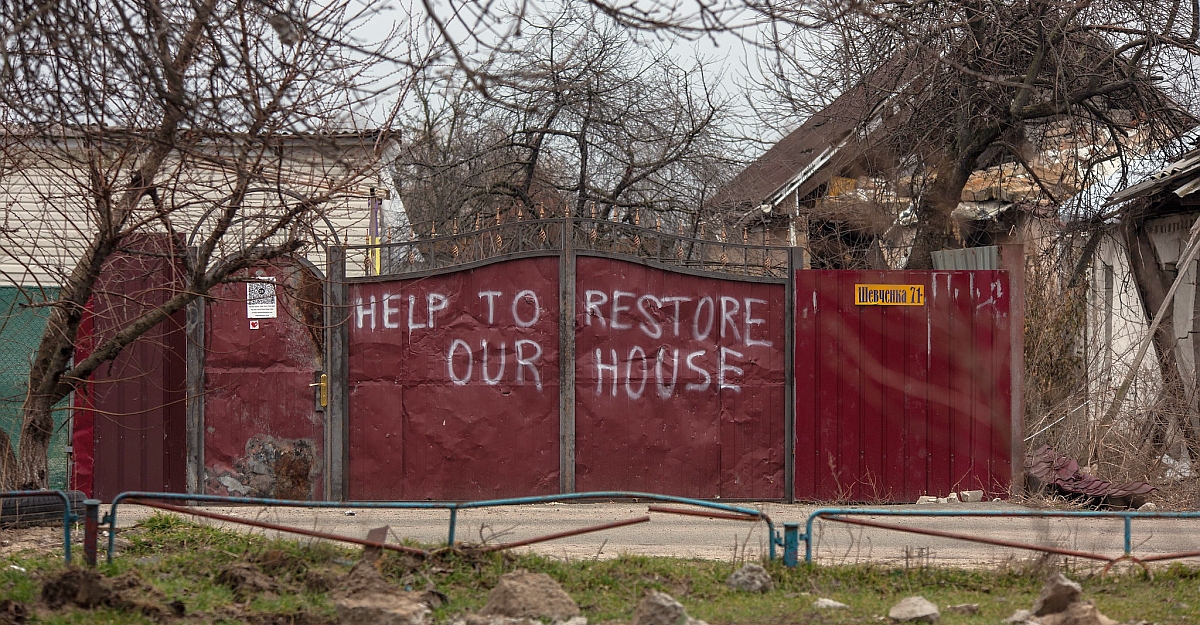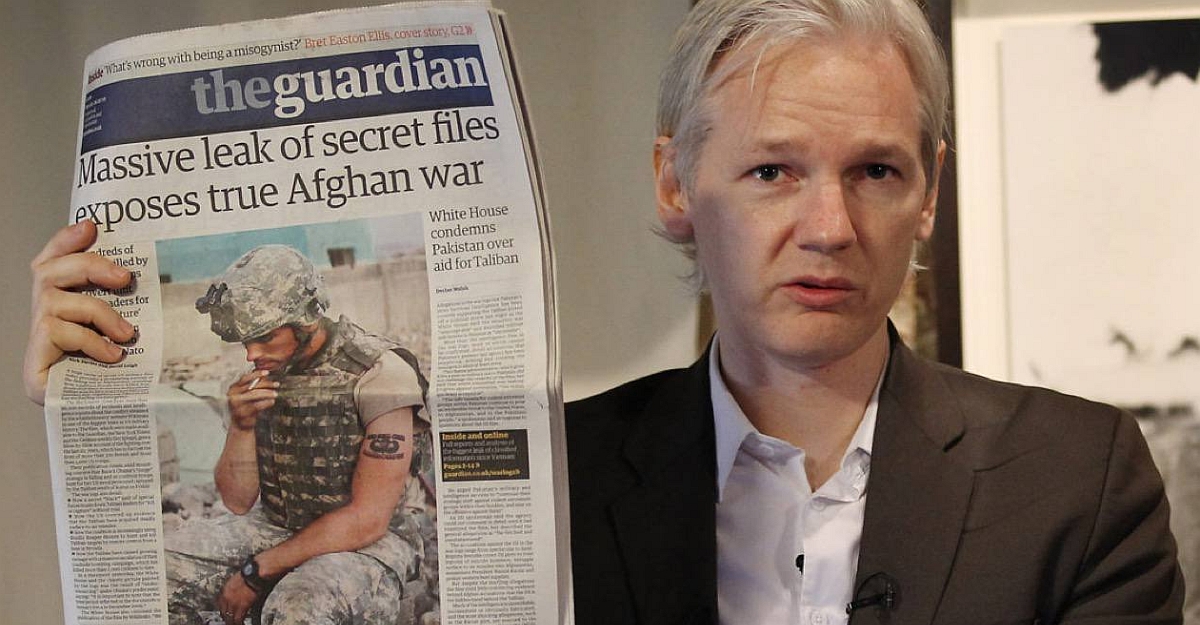In his recent book Against Empathy, psychology professor Paul Bloom cautions against using empathetic responses to the suffering of individuals as a basis for the actions we take. Bloom writes:
It would be bad enough if empathy were simply silent when faced with problems involving large numbers, but actually it’s worse. It can sway us toward the one over the many. This perverse moral mathematics is part of the reason why governments and individuals care more about a little girl stuck in a well than about events that will affect millions or billions. It is why outrage at the suffering of a few individuals can lead to actions, such as going to war, that have terrible consequences for many more.
On 6 April, US President Donald Trump ordered a missile strike on a Syrian Government airbase in retaliation for a chemical weapon attack in Khan Sheikhoun that killed around 100 people. According to the Pentagon, Trump’s strike saw fifty-nine Tomahawk missiles fired from US warships at Al-Shayrat airbase, the site from which the chemical attack was allegedly launched. It was reported that seven civilians were killed and nine wounded.
The only rationale offered by Trump for the strike was that he had been motivated to act by pictures of gassed victims – including, in Trump’s words, ‘beautiful babies’. Noting the sudden reversal of the President’s isolationist, ‘America-First’ campaign rhetoric, Foreign Policy’s Max Boot wryly suggested: ‘The Trump doctrine appears to be: The United States reserves the right to use force whenever the president is upset by something he sees on TV’. Nevertheless, Boot was broadly supportive of the Al-Shayrat attack. ‘It is a good thing he did act,’ he wrote.
In fact, for the first time in Trump’s presidency, large swathes of the liberal press applauded a man they had expended many thousands of spoken and written words denouncing as a neo-fascist bigot and buffoon. The missile strike, according to CNN’s Fareed Zakaria, marked the moment ‘Donald Trump became president of the United States’. Even more absurd examples abounded. On MSNBC, Brian Williams described the missile strike in terms worthy of the romantic poets:
We see these beautiful pictures at night from the decks of these two US Navy vessels in the Eastern Mediterranean. I am tempted to quote the great Leonard Cohen: ‘I’m guided by the beauty of our weapons’. And they are beautiful pictures of fearsome armaments making what is, for them, a brief flight over this airfield.
Williams made no mention of the strike’s civilian casualties, or of the presumably pertinent fact that Trump invests in Raytheon, the military contractor that built the ‘beautiful’ missiles for $1.4 million apiece. Perhaps Williams simply forgot these details in his war fever, just as his colleagues in the liberal media seemed to have erased from their minds what Trump has said he thinks of them: that they are ‘among the most dishonest human beings on Earth’ and that they are ‘the enemy of the people’.
Meanwhile the New York Times – which Trump has repeatedly accused of ‘failing’ – had it that ‘On Syria Attack, Trump’s Heart Came First’. This ‘heart’, which had so patently failed to guide its owner in matters of personal ethics (‘grab them by the pussy’), was now being advanced by a pillar of the liberal media as a reliable moral guide to world affairs. The bipartisan consensus that Trump did a good thing – evident throughout much of the mainstream media as well as the political class – has been remarkable, as noted this week in the Australian by conservative commentator Janet Albrechtson:
The US President’s targeted strikes last week, which send an overdue message to other tyrants about the use of WMD, has [sic] drawn applause from wide and far. Sections of the media not known for praising Trump have lauded his decision. Republicans and Democrats in the US have united. Major parties in Britain, France, Australia. Israel. Turkey. All on side.
Images of children – suffering, or dead, or dying – have, since the advent of mass media, come to stand for whole conflicts and issues and to animate moral positions. Think of Nilüfer Demir’s photographs of Alan Kurdi or the video taken of Omran Daqneesh. Perhaps the most famous of all is Nick Ut’s Pulitzer Prize-winning image of nine-year-old Phan Thi Kim Phuc, photographed naked and suffering horrific burns from a Vietnam War napalm attack. Forty years ago, Susan Sontag termed such images ‘ethical reference points’. Social media and twenty-four-hour news have turbocharged their dissemination and reception. But, Sontag warned, the moral content of images is unstable. I have documented before how photographs shared on social media can easily be sloughed of context to make one point or another. But Trump’s citing of TV images of gassed children as the decisive factor in ordering the Al-Shayrat strike foregrounds a different problem, one that Bloom is concerned with in his book: that empathy acts like a spotlight, narrowing our focus to the plight of a few individuals while throwing the surrounding area into darkness.
This point is easily illustrated. As horrific as the Khan Sheikhoun gas attack was, chemical weapons are responsible for less than one per cent of all casualties and property damage in the Syrian war. Even if – as many commentators appear to think – Trump’s strike ends up having a deterrent effect on the use of such weapons in Syria, conventional weapons will continue to cause virtually all of the war’s death and destruction. What other facts have disappeared from view in the rush to praise the missile strike that, over and over again, we are told was a ‘proportionate’, ‘decisive’ and ‘calibrated’ response?
- Trump, as expressed in a now-deleted series of tweets, opposed bombing Syria (or Iran or Libya) while Obama was president. On 20 August, 2013 he tweeted: ‘The President must get Congressional approval before attacking Syria-big mistake if he does not!’ On 5 September, 2013 he tweeted: ‘AGAIN, TO OUR VERY FOOLISH LEADER, DO NOT ATTACK SYRIA – IF YOU DO MANY VERY BAD THINGS WILL HAPPEN & FROM THAT FIGHT THE U.S. GETS NOTHING!’
- The strike, which was not approved by congress, may have been unlawful. At the very least it violates the international norm that nation states only act militarily in their self-defense.
- For all the Trump administration’s claims that the gas attack was a war crime perpetrated by the Assad regime, Trump has not previously shown much of a predilection for respecting human rights. During a primary debate in February 2016 he said that he would ‘bring back waterboarding, and I’d bring back a hell of a lot worse than waterboarding’. He has also said he supports the deliberate murder of terrorists’ families by the US military.
- Since losing the election, the Democrats (and many of their barrackers in the liberal media) have been possessed by the idée fixe that Trump is in league with Vladimir Putin – key ally of the Assad regime – if not his puppet. With the Syrian conflict an acknowledged proxy war between two nuclear-armed powers, the US and Russia, the Democrats’ lauding of Trump’s strike has left them little room to convincingly advocate for a de-escalation of an increasingly dangerous situation. Instead, they can be relied upon to double down on their ‘Kremlin-controls-Trump’ conspiracy theory.
- Trump’s record, far from evincing humanitarian concern for civilian victims of the war in Syria, demonstrates the President’s selective compassion. Since taking office, Trump has been fighting the US legal system to keep all Syrian refugees out of the country. In February 2016, during a pivotal time in the race for the Republican presidential nomination, he boasted that ‘I’ll look Syrian children in the face and say they can’t come’. He later added: ‘I have a bigger heart than anybody in this room’.
War making is central to US politics. Shedding blood in the name of the national interest is, in R. W. Apple Jr’s phrase, a ‘Presidential initiation rite’. And so, with much of the liberal media acting as guard of honour, Trump’s Syrian strike – proceeding from his disastrous, and already forgotten, Yemen raid just days into his presidency – ushers him into the pantheon of war leaders. The wars these men have fought – in Vietnam, Grenada, Lebanon, Panama, Iraq and elsewhere – have always been framed by the language of humanitarianism, a sop to liberals that, somehow, failed war after failed war, still works.
In a recent piece for Jacobin, Bashir Abu-Manneh reminds us that:
Being contra-empire and pro-refugee is not enough. It is simply unacceptable to stand by and see a brutal regime like Assad’s get away with emptying Syria of its own people. Syrians have a right both to live and to live freely in their homeland. No regime should be allowed to massacre its own people or force them into a life of permanent exile and displacement.
Assad is intolerable. But Trump’s intervention is not a solution; it is a gesture the championing of which by the cultural establishment will only legitimise and embolden an administration whose growing domestic unpopularity and haphazard foreign policy fare ill for other potential zones of conflict: on the Russian border, in North Korea and the South China Sea. Moral action need not – indeed, should not – be derived from limited (and selective) empathetic responses to suffering. Nor should we be comfortable with the idea that its highest possible expression lies in the form of bombs. The Syrian catastrophe can be enumerated in the millions. At such a scale, it will take a moral purview infinitely larger than Trump’s to even begin to arrest the carnage.






